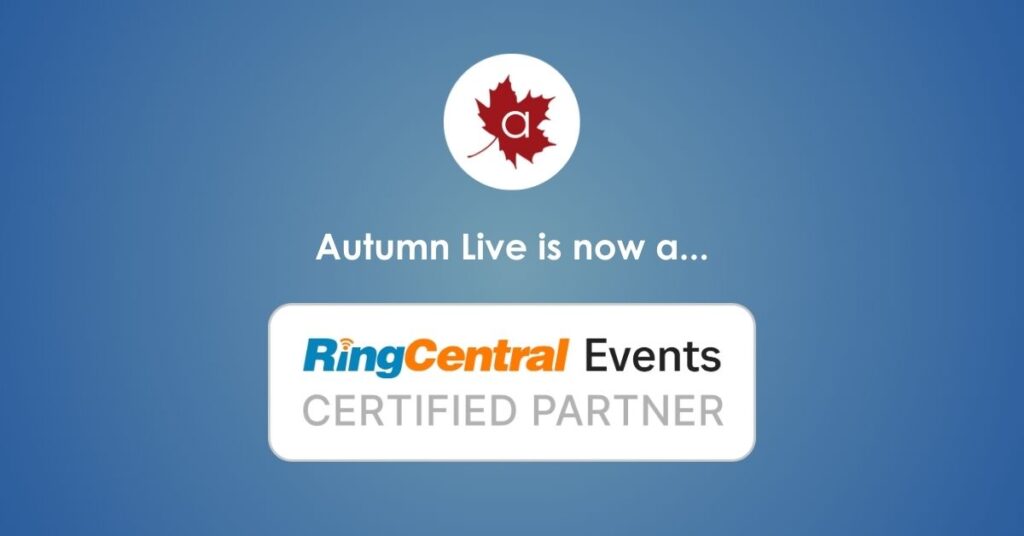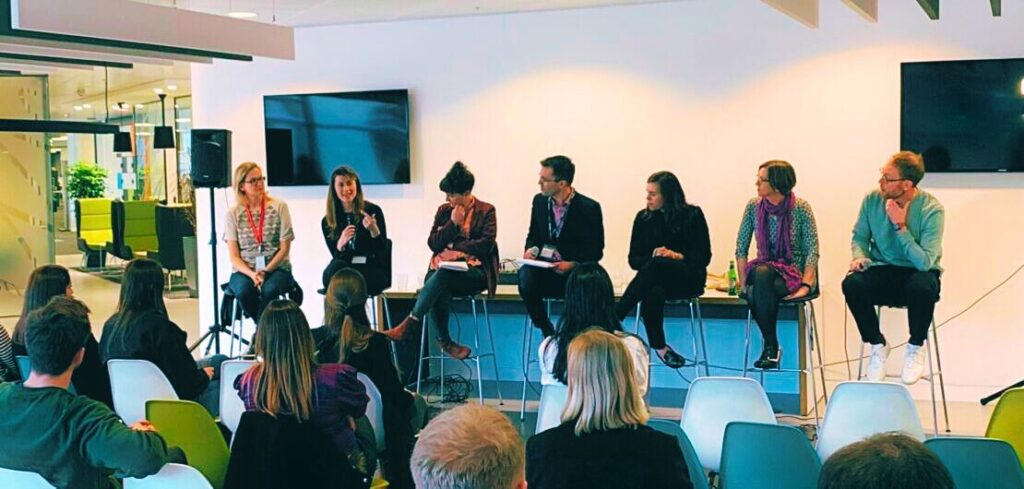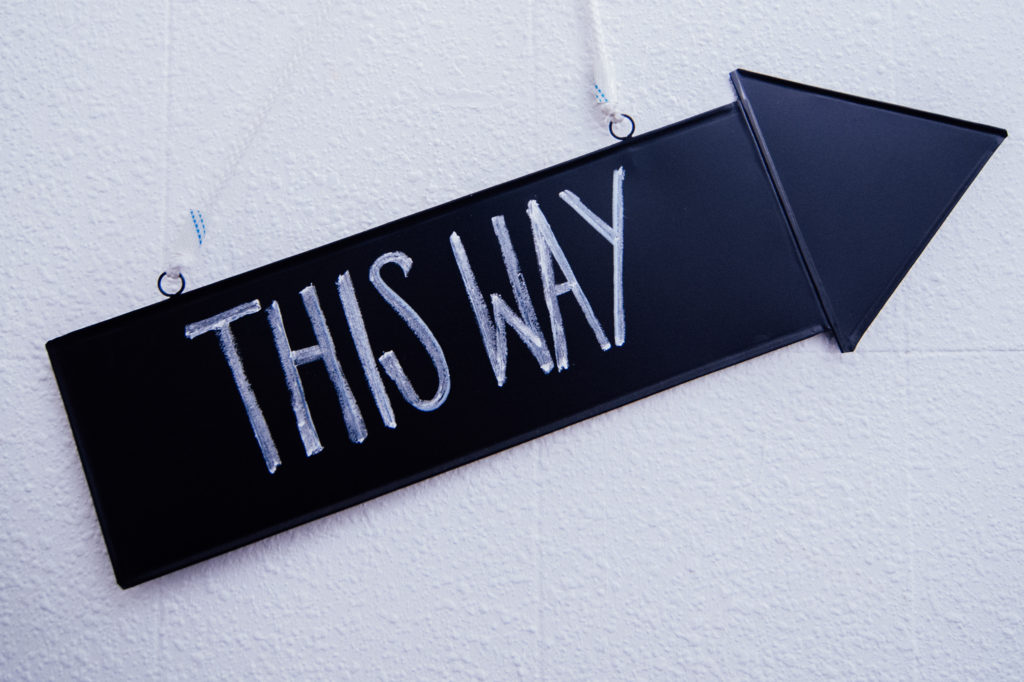Diversity, inclusion, and equity in the UK events industry is an area we’d like to create positive change in.
It was just 2018 when we noticed a major tech conference did not programme any female speakers on the keynote stage.
We’re seeing that events are gradually evolving beyond this homogeneity. Events are aiming to represent the wide range of cultures, backgrounds, and experiences that shape our society. Conference and keynote speakers are given an elevated platform and it is imperative that we, as organisers, use our programming of powerful platforms to ensure they are a place to foster understanding, respect and appreciation.
As organisers and event planners it’s imperative we take a responsible role to play in programming, prioritising representation and challenging our clients who are inviting speakers and guests. The importance of representation cannot be understated, and the events industry is gradually recognising its significance. Event organisers are actively seeking out diverse speakers, hosts and performers, to ensure a more inclusive and authentic experience. By amplifying voices that have long been marginalized, events foster an environment where attendees can relate, connect, and appreciate a broader range of perspectives. We know diverse teams are known to have better outcomes therefore events can be a catalyst to bring together diverse voices to ensure event objectives are met. Make sure you ‘know your why’ and the purpose behind your event.
Inclusion
Many events are, by their invitational nature, exclusive. Only a limited number of people can join. As organisers we are actively striving to create welcoming and accessible spaces for all attendees. Venues are more accessible for people with disabilities. Venues with a hearing loop, lift access and step-free access are more common-place than they were 20 years ago. The objective of inclusive events is to eliminate barriers and ensure that no one feels excluded or marginalized
Equity
Despite progress, the UK events industry still confronts substantial barriers hindering true equity. Historically marginalized groups, including people of colour, women, and people with disabilities, often face unequal opportunities and systemic biases. Initiatives aimed at dismantling these barriers, such as mentorship programs, scholarships, and support networks, seek to empower individuals from all backgrounds, enabling them to thrive in the industry. We have to be deliberate if we want this to change.
Collaborating is key
The future of the UK events industry relies on collaboration and collective action to cultivate diversity, inclusion, and equity. Industry associations, event organisers, agencies and government bodies are joining forces to develop guidelines, initiatives, and awareness campaigns that promote these values. Through knowledge sharing and collaboration, the industry is taking substantial steps towards creating an environment where everyone has an equal opportunity to thrive.
What can we do to promote Equity, Diversity, and Inclusion in events we organise?
How can we help our clients who are programming speakers also be more diverse, inclusive and equitable?
Challenging the UK Event industry: DICE
DICE is an acronym for Diversity and Inclusion in Conferences and Events.
It encompasses a set of principles and practices aimed at creating an environment that values and respects individuals from diverse backgrounds, ensures equal opportunities, and promotes fair treatment for all.
Get DICE was set up in 2019 by Amy Kean and James Whatley who got fed up of using social media to call out all male panels at events.
The DICE process provides certification and guidance to help conferences and events deliver a representative and diverse set of speakers, perspectives, and attendees. DICE do this by asking conference and events organisers to sign up to and abide by the DICE Charter
Based on national statistics and the nine protected characteristics as defined and protected by the Equality Act 2010. The DICE Charter is a 10 point system that offers clear information on what to do to ensure events are more inclusive and diverse.
Diversity
Refers to the representation of various identities, including but not limited to race, ethnicity, gender, sexual orientation, age, disability, and socio-economic background. Embracing diversity means actively seeking out individuals from different backgrounds to ensure rich variation.
Inclusion
This focuses on creating an environment where all individuals feel welcomed, valued, and respected. It involves removing barriers, both physical and psychological, that might hinder certain groups from fully participating. Inclusive practices look like:
- accessible venue design
- providing accommodation for individuals with disabilities
- offering diverse programming
- ensuring that all attendees have a voice and are heard
Equity
This is the principle of treating individuals fairly and providing equal access to opportunities and resources. It acknowledges that not everyone starts from the same position and that different groups may require different levels of support to achieve equitable outcomes. Equity in the events industry involves:
- addressing systemic biases
- creating pathways for underrepresented groups
- actively working to eliminate barriers to entry and advancement
Integrating DICE principles
Integrating DICE principles into the events we programme helps create a more inclusive and equitable landscape. This includes diverse representation among event organisers, speakers, hosts, performers, and attendees. Alongside implementing policies and practices that ensure fair treatment, access, and opportunities for everyone involved.
DICE is not just a moral imperative; it also has tangible benefits for the industry. By embracing diversity, events become more vibrant, representative, and relevant to a wider audience. Inclusive and equitable practices enhance attendee experiences as well as fostering creativity. Additionally embracing diversity enables the industry to tap into a broader pool of talent, perspectives and ideas.
Ultimately, DICE is about recognizing and celebrating the uniqueness of individuals. Ensuring that everyone has a seat at the table whilst creating a more inclusive and equitable events industry. This helps events to reflect the diverse society we live in.
Finally
There still are significant challenges in the events industry, but collective efforts are moving us closer to a more inclusive future. By fostering diversity, embracing inclusion, and prioritizing equity, we are shaping an industry that can reflect values of a diverse and fair society. It’s important we continue to strive for progress. We need to ensure that every event becomes a catalyst for positive change, where diversity is celebrated, inclusion is practiced, and equity is upheld. If we work together, we can create an events industry that sets a benchmark for transformation.









